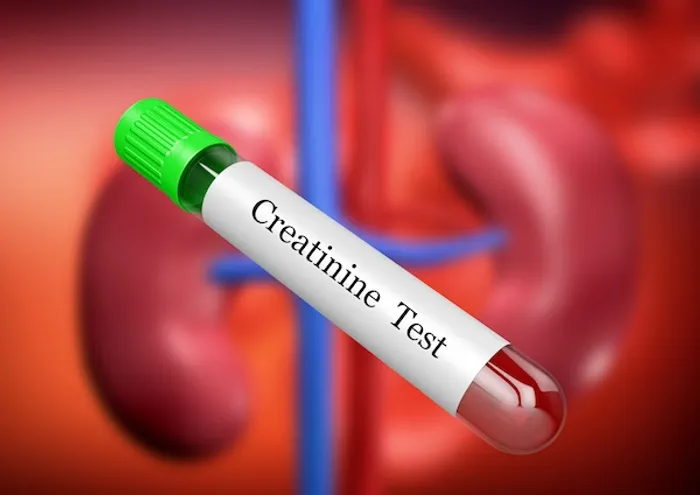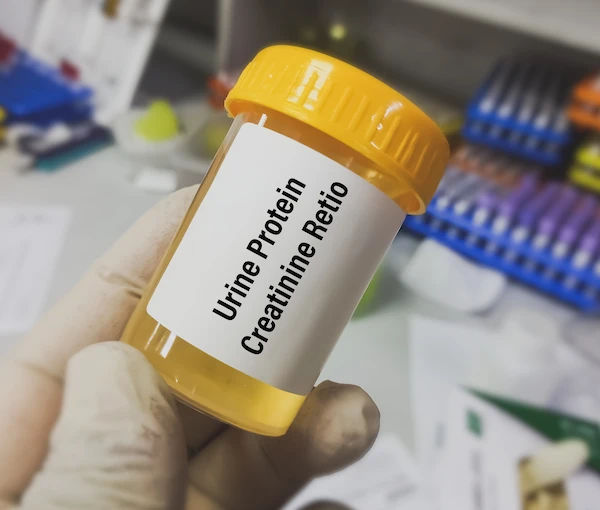Creatinine Clearance Test Procedure Guide
Know the test procedure of the creatinine clearance test, its step-by-step procedure, the significance of values, and tips for good creatinine clearance from the body.


Introduction
If your doctor has recommended a Creatinine Clearance Test, you might have questions about what it is, why it’s needed, and how it’s done. This guide will walk you through everything so that you feel informed and at ease.
What Is a Creatinine Clearance Test?
The Creatinine Clearance Test measures how well your kidneys are working by checking how efficiently they filter creatinine (a waste product from muscle activity) out of your blood. It helps doctors assess your kidney health and detect any potential problems early.
Why Is This Test Important?
Healthy kidneys filter waste from your blood and remove it through urine. If your kidneys aren’t working properly, creatinine levels can rise, indicating possible kidney disease or damage. This test helps:
- Diagnose kidney disorders (like chronic kidney disease).
- Monitor existing kidney conditions.
- Check how well treatments (like dialysis) are working.
How to Prepare for the Test?
To get accurate results, follow these simple steps before the test:
1. Avoid Certain Foods & Medications
- 24 hours before the test, avoid high-protein foods (like meat, fish, or eggs) as they can temporarily increase creatinine levels.
- Inform your doctor about any medications you take, especially antibiotics, diuretics, or painkillers, as some can affect results.
2. Stay Hydrated
- Drink normal amounts of water unless your doctor advises otherwise.
- Avoid excessive caffeine or alcohol, as they can dehydrate you.
3. Follow the Instructions for Urine Collection
This test usually requires:
- A blood sample is taken once.
- A 24-hour urine collection for which you’ll be given a special container.
Kidney specialist for Personalised Health Advice
Step-by-Step Procedure
The creatinine clearance test procedure is systematic and organised. Let's discuss it step-by-step:
Step 1: Serum Creatinine Test blood sample
- A small blood sample is taken from your arm, just like a regular blood test. This measures creatinine levels in your blood.
Step 2: 24-Hour Urine Collection
- Start time: Empty your bladder. It is the first thing in the morning to discard this urine.
- Collect all urine for the next 24 hours in the provided container.
- Storage: Keep the container in a cool place like a fridge.
- Final collection: The next morning, add your first urine of the day to the container.
- Return the sample to the lab as instructed.
Step 3: Lab Analysis
- The lab compares creatinine levels in your blood and urine to calculate creatinine clearance, giving your doctor a clear picture of kidney function.
Understanding Test Results
Normal creatinine clearance ranges vary by age, gender, and muscle mass.
Post the test if your test results are:
- Lower than normal, then
This could indicate kidney disease, dehydration, or blockage. - Higher than normal, then
It is rare, but it may occur in pregnancy or high muscle mass.
Your doctor will explain your results and recommend next steps if needed.
Tips for Better Kidney Health
If your test shows mild kidney concerns, these lifestyle changes can help:
- Stay Hydrated
Drink enough water daily (unless restricted by a doctor). - Eat a Balanced Diet
Reduce salt, processed foods, and excess protein. - Control Blood Pressure & Diabetes
These conditions can harm the kidneys over time. - Avoid Smoking & Excess Alcohol
They strain kidney function.
Exercise Regularly. It helps maintain overall health.
When to See a Doctor?
If you experience:
- Swelling in legs/face
- Fatigue or weakness
- Changes in urination. Urine may be foamy, dark, or have less volume.
- High blood pressure
Consult a doctor immediately. Early detection helps prevent kidney damage.
Need a Test? Apollo 24|7 Can Help!
If your doctor has recommended a Creatinine Clearance Test, you can easily book a blood test or consultation through Apollo 24|7. Their experts ensure a smooth, hassle-free experience with accurate results.
Final Thoughts
The Creatinine Clearance Test is a simple yet important way to check kidney health. By following the preparation steps and understanding the process, you can ensure accurate results.
Kidney specialist for Personalised Health Advice
Kidney specialist for Personalised Health Advice

Dr. Kity Sarkar
Nephrologist
15 Years • MBBS,MD(Genl. Med.), DrNB(NEPHROLOGY)
Kolkata
Dr. Kity Sarkar's Clinic, Kolkata

D. Akshay Zalavadiya
Nephrologist
3 Years • MBBS, MD, DM Nephrology
Ahmedabad
Beacon kidney consult, Ahmedabad

Dr. Siddharth Herur
Nephrologist
4 Years • MBBS, MD General Medicine, DM Nephrology
Kurnool
Medicover hospital and Gurudatta poly clinic, Kurnool

Dr. Anantha Rao
Nephrologist
7 Years • MBBS, DNB (General Medicine), DNB (Nephrology)
Kurnool
Aakash hospital and KIMS hospital, Kurnool

Dr. S Bipin Kumar
Nephrologist
13 Years • MBBS, MD General Medicine, DM, Nephrology
Rajamahendravaram
SG KIDNEY CARE, Rajamahendravaram
Kidney specialist for Personalised Health Advice

Dr. Kity Sarkar
Nephrologist
15 Years • MBBS,MD(Genl. Med.), DrNB(NEPHROLOGY)
Kolkata
Dr. Kity Sarkar's Clinic, Kolkata

D. Akshay Zalavadiya
Nephrologist
3 Years • MBBS, MD, DM Nephrology
Ahmedabad
Beacon kidney consult, Ahmedabad

Dr. Siddharth Herur
Nephrologist
4 Years • MBBS, MD General Medicine, DM Nephrology
Kurnool
Medicover hospital and Gurudatta poly clinic, Kurnool

Dr. Anantha Rao
Nephrologist
7 Years • MBBS, DNB (General Medicine), DNB (Nephrology)
Kurnool
Aakash hospital and KIMS hospital, Kurnool

Dr. S Bipin Kumar
Nephrologist
13 Years • MBBS, MD General Medicine, DM, Nephrology
Rajamahendravaram
SG KIDNEY CARE, Rajamahendravaram
